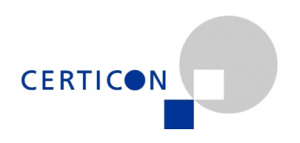Man and machine: What will the future hold?
7.02.2017Company: PricewaterhouseCoopers Česká republika, s.r.o.
This year marks the 20th year of our CEO Survey and it's been fascinating to look back over the surveys to see how the thinking of CEOs has developed, reflecting the environment around them. To their credit, CEOs saw a lot of the turmoil coming; back in 2009, 76% predicted a rise in political and religious tension and even then 46% believed that governments would become more protectionist.
But successful predictions are relatively rare - and that's a salient lesson for people strategy.
In 2015, our CEO survey showed that a third of business leaders were increasing their reliance on contractors and freelancers – signalling the emergence of the ‘gig economy’. Two years later, companies that trailblazed working models based around this new breed of workers are fighting a regulatory backlash and concerns about brand damage. Was that predictable?
It’s a challenge to get people strategy right in such a complicated world. And it’s about to get even more difficult. There’s no doubt that we’re living through a time of profound change, one where technological development is forcing us to question what our place will be in the world – and what role humans will play in the workplace of the future. CEOs are concerned about the impact of a more digitalised world on their relationship with stakeholders; 69% felt this would have a negative impact on stakeholder trust in the next five years.
As automation and the use of Artificial Intelligence (AI) increases, more jobs (and more white collar jobs) will be lost - or at best radically reshaped. One in eight CEOs are already set to reduce headcount due to automation. Yet, our survey shows that the majority of CEOs are still planning to increase headcount – 52% say they’ll hire more people in the coming 12 months. Top of CEOs' talent wish list are those skills that can’t be replicated by machines; innovation and creativity, adaptability, emotional intelligence and leadership.
 It’s hard to know for sure what the future workplace model will be, and how humans and machines will work together. The advent of artificial intelligence means we’ve got to the stage where machines can think – the one thing that set humans apart from every other creature on this planet. So where does that leave us? Dov Seidman, CEO of LRN, which advises companies on leadership and building an ethical culture, told the New York Times recently that it’s the human heart that sets us apart – software cannot produce passion, character and collaborative spirit. This is echoed in our recent interview with Jorge Mario Velásquez Jaramillo, CEO of Grupo Argos SA in Columbia, who said: “Human talent is irreplaceable. You can automate processes. You can have technology as a very significant enabler of business relationships, but human warmth [is] very difficult to replace with machines.”
It’s hard to know for sure what the future workplace model will be, and how humans and machines will work together. The advent of artificial intelligence means we’ve got to the stage where machines can think – the one thing that set humans apart from every other creature on this planet. So where does that leave us? Dov Seidman, CEO of LRN, which advises companies on leadership and building an ethical culture, told the New York Times recently that it’s the human heart that sets us apart – software cannot produce passion, character and collaborative spirit. This is echoed in our recent interview with Jorge Mario Velásquez Jaramillo, CEO of Grupo Argos SA in Columbia, who said: “Human talent is irreplaceable. You can automate processes. You can have technology as a very significant enabler of business relationships, but human warmth [is] very difficult to replace with machines.”
It’s going to be a huge challenge to get people strategy right in a world where humans and machines work alongside each other. There are many ways this could evolve, and some scenarios seem far more likely than others. But in the month we’ve seen President Trump inaugurated and the UK Government’s approach to ‘Brexit’ becoming clear, taking more time to plan for unlikely outcomes seems like a very smart move.
Carol is the global leader of PwC's People and Organisation practice, which brings together 10,000 specialists with industry, technology, analytics, business, talent, strategy and HR expertise. Alongside her work with multinational companies, Carol talks and writes about Talent, Innovation and Diversity; with a focus on the Future of Work and Younger Workers and the role companies and their leadership can play in shaping their own paths in an uncertain environment. Read more.
Author: Carol Stubbings, Global Leader of PwC's People and Organisation practice
Tags: Finance | Business Development | Human Resources |







